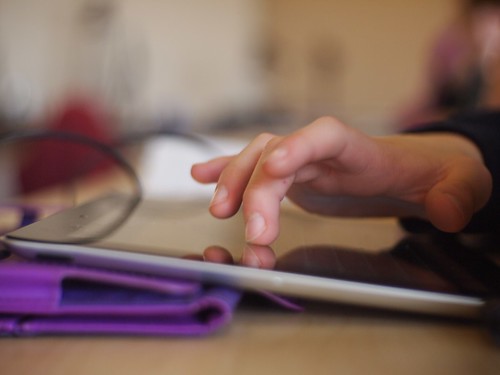 Emma, the second grader I was babysitting, took out her Android Tablet filled with games as soon as we sat down together at a casual breakfast restaurant one Saturday. Our conversation went something like this:
Emma, the second grader I was babysitting, took out her Android Tablet filled with games as soon as we sat down together at a casual breakfast restaurant one Saturday. Our conversation went something like this:
Oh, Emma, you won’t be needing that. I will enjoy talking with you over breakfast this morning. (Emma, with some uncertainty, turns the screen off and puts it away. She appears to look as if she thinks she’s in trouble.)
But please tell me about your favorite game you play on that. (She is slightly now more at ease since the conversation still centers around her machine, and she proceeds to tell me about Angry Birds.)
Do you know any stories that are like that game? (She can’t think of any. I didn’t expect she would, however, it would lead us into talking about literature.)
What was the last story you read? [She read Toothiana (by William Joyce), compliments of her Cheerios.]
Tell me what you liked best about that story? (She had a hard time remembering her favorite plot point or character. No matter. She was remembering how to converse. She related in detail what her teachers have told her about her reading ability, other books she has read, other aspects of school and her friends.)
Listening intently to the nuance of Emma’s reflections gave me the opportunity to notice her interests and inclinations. It made for enchanting breakfast, much more than the local newspaper could have provided.
At home that afternoon, a box of books was coincidentally delivered for our homeschool. This serendipity reinvigorated her interest in books, and she abandoned the television to explore the boxful. She selected two books then settled finally on ALL THE SMALL POEMS AND FOURTEEN MORE by Valerie Worth. She read all 192 pages while her tablet lay closed in the other room, quiet and forgotten.